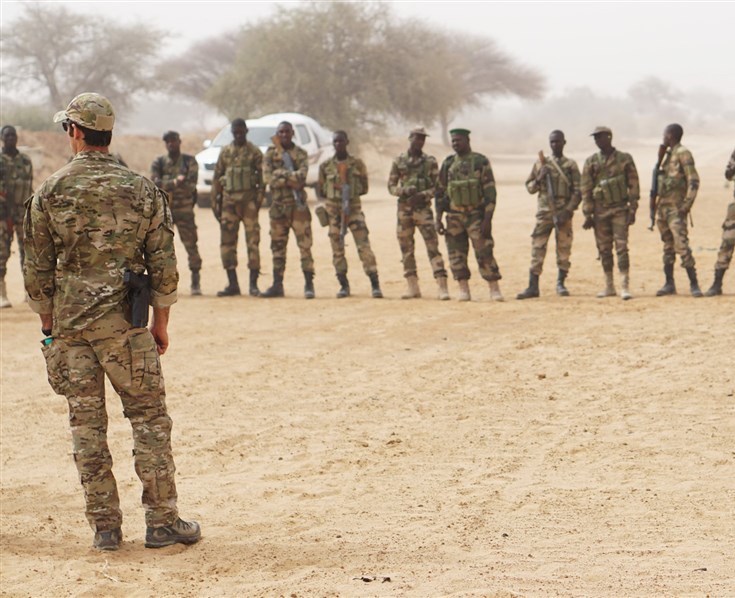Army
Major Danny Sjursen at Truthdig points out that the U.S. military
regularly investigates itself (when investigations are in order) -- in
fact, since 9/11 this has been a total
commonplace -- and of course that generally means more or less nothing
truly gets investigates. Now, such an "investigation" has been launched
about the incident involving four American deaths in Niger -- and he
suggests the sorts of questions a real investigator, not an official
military one, might ask. Here's the first half... Tom
"Investigating yourself: a surefire way to never get to the bottom of
anything. Of course, in some cases that is exactly the point.
"Take the United States Africa Command (AFRICOM), the headquarters
responsible for U.S. military forces deployed on the vast African
continent. Last month, Africa—specifically remote Niger—catapulted
(however briefly) to the top of American newscasts when four U.S. Army
special operations troops were killed in a ferocious ambush. The details
remain sketchy but officials quickly blamed the Islamic State of
Greater Sahara (ISGS), a loose affiliate of ISIS, though curiously
neither al-Qaida nor Islamic State claimed responsibility. Many tactical
questions lingered: Did the troops receive a change of mission, were
they set up by local village elders, did they have enough air support?
Well, this week AFRICOM’s own, two-star chief of staff was appointed to
investigate the “incident” in Niger. Certainly, the general will ask
and—hopefully—answer those basic tactical questions.
"Unfortunately, that is not what the American people should be concerned
with. Larger, more consequential, strategic matters—such as why our
soldiers are there—will probably never be adequately answered. One
doubts AFRICOM’s in-house investigator will pose such tricky questions.
The U.S. military is so accustomed to “forever war” that no one in their
right mind should expect any notable dissent from senior officers. And
Congress? Sure, they’re grumbling some, but America’s representatives
have been MIA on their sacred duty to debate and sanction war since
2001. Less than two months ago, 60 senators scuttled Rand Paul’s modest
effort to rescind the 16-year-old war authorization. Don’t count on much
from these duds.
Advertisement
"Anyway, just in case anyone
is interested in a real investigation of the genuine issues, here’s a
draft list of questions I’d pose to senior policymakers:
"*What
exactly are America’s vital, strategic interests in one of the world’s
poorest, driest, malnourished and unstable (five republics in 50 years)
nations?
"*Do the region’s assorted, local Islamists actually
present a tangible threat to the homeland? After all, isn’t it true that
al-Qaida in the Islamic Maghreb (AQIM)—the regional heavyweight—didn’t
exist in 2001, and has never conducted attacks outside Africa or the
Middle East?
"*Is it possible American troops are making matters
worse? Isn’t it correct that West Africa had far fewer radical Islamist
groups on 9/11 and they’ve only proliferated since U.S. troops entered
the region in 2002? The Islam practiced in West Africa was traditionally
syncretic [blending two or more belief systems], moderate and
Sufi-influenced, was it not? Could it be the U.S. “War on Terror” has
radicalized the region?
"*What if the West African
states—unstable and generally autocratic—are simply conning the U.S.
into providing military subsidies and equipment? Doesn’t the U.S. have a
history of sending in the cavalry every time a country cries “wolf” or,
in this case, “terror”? Could it be America is being drawn into local,
ethnic and tribal quarrels masquerading as terrorism?..."

A U.S. Army Special Forces weapons sergeant addresses a group of
Nigerien soldiers before a team exercise in Diffa, Niger, in March. (Spc. Zayid Ballesteros / U.S. Army)
